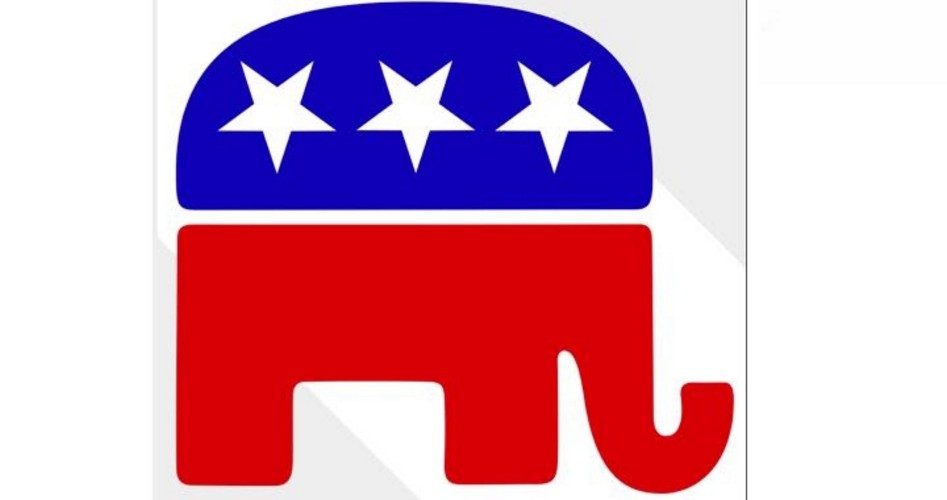
Mid-term elections are typically difficult for the party in power, and this year’s is no exception. But with a chance to pick up a seat that has been Democratic since the Eisenhower administration (when former Klansman Robert Byrd won the seat), the GOP faced the nightmare scenario of blowing that chance, owing to picking an unelectable nominee in the primary.
Businessman and outsider Don Blankenship, a little more than a year removed from prison, held a slight lead in some polls over West Virginia Attorney General Patrick Morrisey (R) and Representative Evan Jenkins (R). But the polls were wrong, and Morrisey coasted to a rather easy win with 35 percent of the vote. Blankenship finishing a distant third with just under 20 percent.
Blankenship had been convicted of conspiring to willfully violate mine safety and health standards in connection with the Upper Big Branch Mine Disaster, which killed 29 miners in 2010. Because of that conviction, most Republican operatives saw Blankenship as unelectable. Many in the GOP, including President Trump, drew comparisons between Blankenship and Judge Roy Moore, who lost a reliably Republican senate seat to Doug Jones (D), largely owing to allegations of sexual misconduct with underage girls.
On Monday, President Trump tweeted, “To the great people of West Virginia we have, together, a really great chance to keep making a big difference. Problem is, Don Blankenship, currently running for Senate, can’t win the General Election in your state…No way! Remember Alabama. Vote Rep. Jenkins or A.G. Morrisey.”
In addition to his prison sentence, Blankenship made several controversial comments during the campaign, one of which was seen as racist, when he suggested that Senate Majority Leader Mitch McConnell wanted to secure jobs for “China people.” McConnell’s wife, Transportation Secretary Elaine Chao, is of Chinese descent. Blankenship also referred to McConnell as “Cocaine Mitch” in reference to a report that cocaine was found aboard a ship that was owned by Chao’s family.
After Blankenship’s loss, McConnell’s team couldn’t resist a barb at Blankenship via Twitter. Aides posted a picture of McConnell surrounded by white dust along with the words, “Thanks for playing, Don.”
Way to keep it classy, Mitch.
Post-election, President Trump tweeted, “The Republican Party had a great night. Tremendous voter energy and excitement and all candidates are those that have a great chance of winning in November.”
In his concession speech, Blankenship cited President Trump’s Twitter intervention as the main cause of his defeat. “It didn’t work out,” Blankenship told reporters. “I’m being asked, of course, whether some of the things we did, whether it’s Cocaine Mitch, whether it’s some of the other criticisms of Mitch McConnell or whether it’s China people have made the difference. I really don’t think so. I think if there was any single factor, based on polling at different times, the debate and all the things I saw, it was probably more likely President Trump’s … lack of endorsement.”
The West Virginia seat, currently held by Joe Manchin (D), is considered one of several seats currently held by Democrats that are vulnerable this year. Manchin, a centrist Democrat who has voted with the Trump agenda more than 60 percent of the time, is clearly not the worst Democrat in the Senate. But with the House of Representatives possibly switching hands this November, the GOP is looking to hold or add on to its slim advantage in the Senate. Currently, the split is 51 Republicans to 47 Democrats. The two Independents, Bernie Sanders of Vermont and Angus King of Maine, caucus with the Democrats.
The GOP looks to flip a couple of seats in November. Claire McCaskill (D) Missouri, Joe Donnelly (D) Indiana, Heidi Heitkamp (D) North Dakota, Sherrod Brown (D) Ohio, and Manchin are all considered vulnerable this November. The Republicans will look to pick up few of these seats, while holding on to their own susceptible positions such as the Arizona seat being vacated by RINO Jeff Flake and the Nevada seat of Dean Heller (R).




